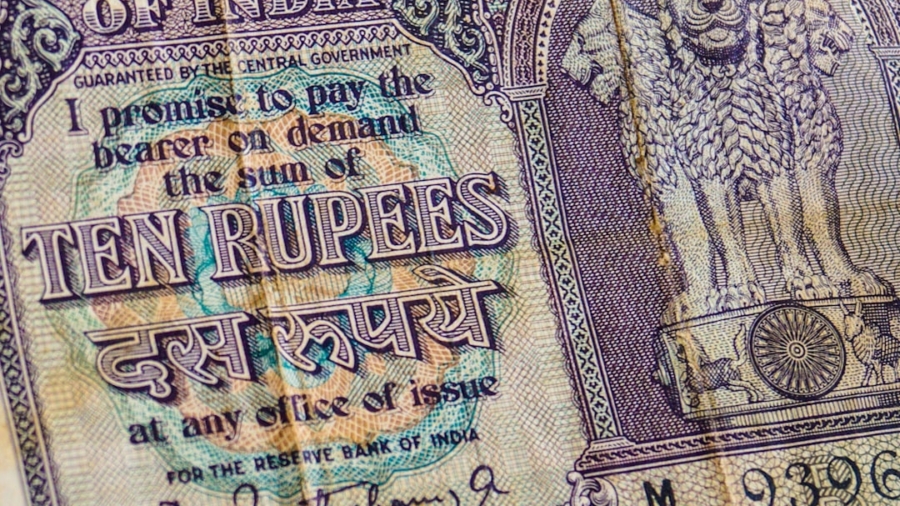In recent years, the landscape of personal finance has undergone a seismic shift, largely driven by the advent of cryptocurrency and the subsequent rise of crypto wallets. Initially designed as simple storage solutions for digital assets, these wallets have evolved into comprehensive financial superapps that offer a plethora of services beyond mere asset management. Users can now engage in trading, lending, staking, and even earning interest on their holdings, all from a single interface.
This transformation has been fueled by the increasing adoption of cryptocurrencies and the growing demand for decentralized financial solutions that empower users to take control of their financial destinies. The rise of crypto wallets as financial superapps can be attributed to several factors. First, the proliferation of blockchain technology has enabled developers to create more sophisticated applications that integrate various financial services.
As a result, users are no longer confined to traditional banking systems; they can access a wide range of financial products directly through their wallets. Furthermore, the user experience has significantly improved, with many wallets now offering intuitive interfaces and seamless navigation. This accessibility has attracted a diverse user base, from seasoned investors to newcomers eager to explore the world of digital finance.
Key Takeaways
- Crypto wallets are evolving into financial superapps, offering a wide range of traditional and crypto financial services in one platform.
- Traditional financial services such as banking, lending, and investing are being integrated into crypto wallets, providing users with a seamless and comprehensive financial experience.
- Multi-asset wallets are emerging, allowing users to store and manage various types of digital and traditional assets in one place.
- DeFi is playing a significant role in expanding the functionality of crypto wallets, enabling users to access decentralized financial services such as lending, borrowing, and trading.
- Security and privacy concerns are growing as crypto wallets evolve, highlighting the need for robust measures to protect users’ assets and information.
Integrating Traditional Financial Services with Crypto Wallets
Seamless Transfers between Fiat and Digital Currencies
For instance, users can link their bank accounts to their crypto wallets, allowing for easy transfers between traditional currencies and cryptocurrencies. This functionality not only simplifies the process of buying and selling digital assets but also enhances liquidity for users who wish to capitalize on market fluctuations.
Spending Cryptocurrency in Everyday Transactions
Moreover, some wallets have begun to incorporate features such as debit cards that allow users to spend their cryptocurrency in everyday transactions. These cards convert digital assets into fiat currency at the point of sale, making it easier for users to utilize their crypto holdings in real-world scenarios.
Redefining the User Experience in Financial Management
This integration of traditional financial services into crypto wallets is not merely a convenience; it represents a fundamental shift in how individuals interact with money. By merging the best aspects of both worlds, these superapps are redefining the user experience and expanding the possibilities for financial management.
The Emergence of Multi-Asset Wallets

As the cryptocurrency ecosystem continues to diversify, the emergence of multi-asset wallets has become increasingly significant. These wallets allow users to store, manage, and transact with a variety of digital assets, including cryptocurrencies, tokens, and even non-fungible tokens (NFTs). The ability to hold multiple asset types within a single wallet simplifies portfolio management and enhances user convenience.
For example, a user can seamlessly switch between trading Bitcoin, Ethereum, and various altcoins without needing to navigate multiple platforms. Multi-asset wallets also facilitate greater investment strategies by enabling users to diversify their holdings easily. Investors can allocate funds across different asset classes based on market trends or personal preferences without the hassle of managing separate wallets for each asset type.
This flexibility is particularly appealing in a rapidly changing market where agility can lead to better investment outcomes. Additionally, as more projects launch on various blockchains, multi-asset wallets are becoming essential tools for users looking to capitalize on emerging opportunities across different ecosystems.
The Role of DeFi in Expanding the Functionality of Crypto Wallets
Decentralized Finance (DeFi) has played a crucial role in expanding the functionality of crypto wallets, transforming them into powerful financial tools that offer users unprecedented opportunities. DeFi platforms enable users to lend, borrow, and earn interest on their digital assets without relying on traditional intermediaries like banks. By integrating DeFi protocols directly into crypto wallets, developers are providing users with access to a wide array of financial services that were previously unavailable or cumbersome to navigate.
For instance, many crypto wallets now feature built-in DeFi functionalities that allow users to participate in yield farming or liquidity mining directly from their wallet interface. This integration not only streamlines the user experience but also empowers individuals to take advantage of high-yield opportunities in the DeFi space without needing extensive technical knowledge. Furthermore, as DeFi continues to evolve, we can expect even more innovative features to be incorporated into crypto wallets, such as automated trading strategies and advanced analytics tools that help users make informed decisions.
Security and Privacy Concerns in the Evolution of Crypto Wallets
As crypto wallets have evolved into financial superapps, security and privacy concerns have become paramount. The rise in popularity of these wallets has attracted malicious actors seeking to exploit vulnerabilities for financial gain. Users must be vigilant about securing their private keys and ensuring that they are using reputable wallet providers.
Many wallets now incorporate advanced security features such as two-factor authentication (2FA), biometric verification, and hardware wallet compatibility to enhance user protection.
While blockchain technology offers transparency, it can also expose users’ transaction histories if not managed properly.
Some wallets are now implementing privacy-focused features such as coin mixing or zero-knowledge proofs to help users maintain anonymity while transacting.
The Impact of Crypto Wallet Superapps on Financial Inclusion

The rise of crypto wallet superapps has significant implications for financial inclusion worldwide. Traditional banking systems often exclude large segments of the population due to factors such as geographic barriers, lack of identification documents, or high fees associated with account maintenance. In contrast, crypto wallets provide an accessible entry point into the financial system for unbanked and underbanked individuals.
With just a smartphone and internet access, anyone can create a wallet and start participating in the global economy. Moreover, crypto wallets enable users to engage in peer-to-peer transactions without intermediaries, reducing costs and increasing efficiency. This is particularly beneficial in regions where remittance fees are exorbitantly high or where access to banking services is limited.
By facilitating direct transactions between individuals, crypto wallet superapps empower users to take control of their finances and participate in economic activities that were previously out of reach. As adoption continues to grow, these tools have the potential to reshape entire economies by fostering entrepreneurship and enabling individuals to build wealth.
Regulatory Challenges and Opportunities for Crypto Wallet Superapps
The rapid evolution of crypto wallet superapps has not gone unnoticed by regulators worldwide. As these platforms gain traction and attract millions of users, governments are grappling with how to regulate them effectively while fostering innovation. Regulatory frameworks vary significantly across jurisdictions; some countries have embraced cryptocurrencies and blockchain technology, while others have imposed strict restrictions or outright bans.
This regulatory landscape presents both challenges and opportunities for crypto wallet providers. On one hand, compliance with regulations can be burdensome and costly, potentially stifling innovation and limiting access for users. On the other hand, clear regulatory guidelines can enhance consumer trust and legitimacy within the industry.
As regulators work towards establishing frameworks that balance innovation with consumer protection, crypto wallet superapps must adapt to navigate this evolving landscape effectively.
The Future Outlook for Crypto Wallets as Financial Superapps
Looking ahead, the future of crypto wallets as financial superapps appears promising yet complex. As technology continues to advance and user expectations evolve, wallet providers will need to innovate continually to stay competitive. We can anticipate further integration of artificial intelligence (AI) and machine learning (ML) technologies into these platforms, enabling personalized financial advice and automated investment strategies tailored to individual user profiles.
Additionally, as more traditional financial institutions recognize the potential of cryptocurrencies and blockchain technology, we may see increased collaboration between banks and crypto wallet providers. This could lead to hybrid models that combine the best aspects of both worlds—offering users enhanced security and regulatory compliance alongside the flexibility and innovation inherent in decentralized finance. Ultimately, the trajectory of crypto wallets as financial superapps will depend on how well they address security concerns, regulatory challenges, and user needs while continuing to expand their functionalities.
As they evolve into comprehensive financial ecosystems that cater to diverse user requirements, these wallets have the potential to redefine personal finance in ways we are only beginning to understand.
In a world where technology is constantly evolving, the concept of financial superapps is becoming increasingly popular. As discussed in the article “Discover the Best Laptops for Blender in 2023: Top Picks and Reviews,” having the right tools and technology is essential for staying ahead in the digital age. Just like how crypto wallets are revolutionizing the way we manage our finances, having a high-performance laptop can make a significant difference in productivity and efficiency. With the rise of ERP subscriptions and innovative devices like the Samsung Galaxy Chromebook 4, the possibilities for integrating technology into our daily lives are endless. The interconnectedness of these advancements highlights the importance of staying informed and adaptable in a rapidly changing world. Read more
FAQs
What is a crypto wallet?
A crypto wallet is a software program that stores private and public keys and interacts with various blockchain to enable users to send and receive digital currency and monitor their balance.
What are financial superapps?
Financial superapps are platforms that offer a wide range of financial services, such as payments, investments, lending, and more, all within a single app.
How are crypto wallets becoming financial superapps?
Crypto wallets are expanding their services to include features such as staking, decentralized finance (DeFi) integrations, and the ability to buy, sell, and hold various cryptocurrencies, effectively transforming them into financial superapps.
What are the benefits of crypto wallets becoming financial superapps?
By offering a wide range of financial services, crypto wallets can provide users with a seamless and convenient way to manage their digital assets, access decentralized finance protocols, and participate in various investment opportunities, all within a single platform.
Are there any risks associated with using crypto wallets as financial superapps?
While the expansion of services within crypto wallets can provide added convenience, users should be aware of potential security risks and ensure they are using reputable and secure platforms to protect their digital assets.

